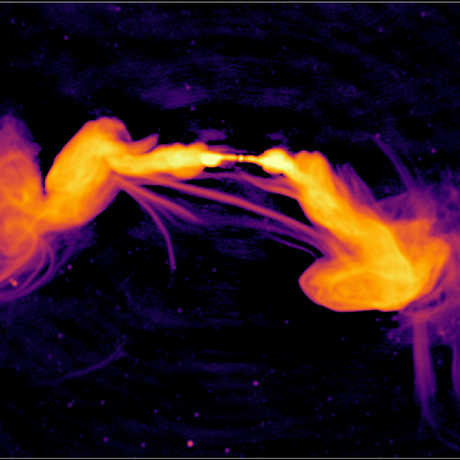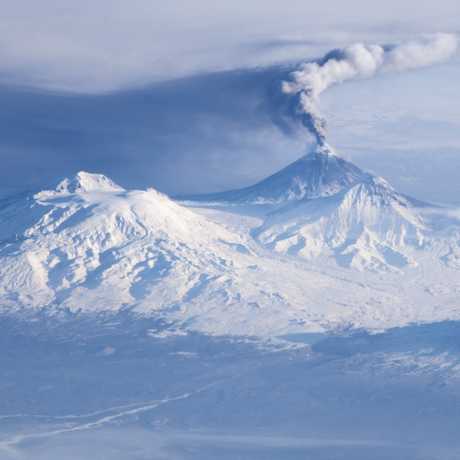*unless you’re very bad at flying your spaceship.
There’s been a very welcome bump in interest surrounding black holes since the recent picture dropped. With it has come a corresponding swell in questions, including the “Why take a picture of a black hole?” topic we covered last week. Most of the interest is positive, but it’s become apparent there’s also quite a bit of anxiety about black holes, too—stemming mainly from the sentiment that they are like giant roombas that move around and suck things up—and that we might get consumed by one and die.
Crazy oddball theories about black holes have been around for about as long as we’ve known about them. Heck, one of the shows playing right now includes a trip through a black hole that connects two points in space, one of which is inside our solar system—and it’s not totally unreasonable. Modern theories include the idea that our entire existence is a holographic projection onto the event horizon of a black hole.
Black holes are weird, yes.
-
They look peculiar.
-
They warp space enough to fold it in on itself.
-
Weird stuff happens to time due to their insane gravity.
-
The math you need to describe them is pretty complex.
-
Once you cross the event horizon all bets are off as to what they’re like inside.
But none of that means they’re magic death magnets that will rip the Sun from the sky and gobble up Earth.
Just because we don’t completely understand them doesn’t mean that everything is possible. Above the event horizon (the point at which light cannot escape), they play by all the same rules as everything else—i.e., in order for you to fall in you’d have to be on a collision course with it already or it’d have to break some conservation laws. So, as long as you don’t intentionally aim for one, you’re fine.
In fact, if you replaced the Sun with a black hole of the same mass, nothing would change (other than we’d all freeze to death). Earth would keep going (without us or perhaps with our frozen corpses) around the Sun in the usual 365-day year.
Actually stars are way more dangerous! Our new black hole won’t give you a sunburn or irradiate our astronauts.
But black holes are dangerous. Falling into one is indeed a death sentence—after all, even light can’t escape! But I got news for you—falling into a star ain’t great either. Or crashing into a planet. A small- to medium-sized asteroid is more than big enough to smush you. Even a baseball in low Earth orbit has the kinetic energy of a freight train at cruising speeds. And all of those are millions of times more abundant than black holes.
And as for the whole “you can never escape” thing. We have a hard enough time “escaping” Earth’s gravity. And even our best rockets have no hope of escaping a Jupiter-sized planet. It takes something with the density of a black hole to trap light, but it only takes the gravitational pull of, like, three Earths to keep us trapped forever.
I know nobody asked, but I blame the media. Black holes are mysterious—or rather they seem mysterious. They’re like the bogeyman of space. And people like imagining the bogeyman. And it doesn’t help that astronomers like to play coy when asked about them either, often suggesting, “Maybe!” when they instead should have said, “There is absolutely no reason to think so.”
So what I’m trying to say is don’t worry about black holes. Or if you do, at least you should also worry about literally everything else as well.
Image: Alain r/Wikipedia




